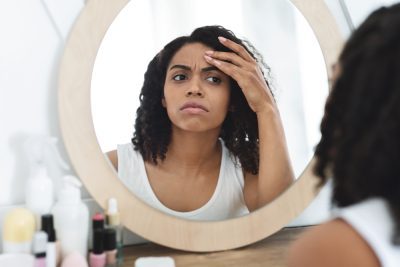Expert insights into managing and preventing morning facial swelling

Introduction to facial swelling
Facial puffiness, or edema, is a common concern that can alter your appearance and shake your confidence. Most noticeable in the morning, this temporary swelling stems from various causes, both internal and external. In this guide, we’ll explore the origins, remedies, and preventive strategies to help you wake up looking refreshed and radiant.
Understanding facial puffiness
Clinical definition
Facial puffiness occurs when excess fluid accumulates in the soft tissues of your face, often leading to noticeable swelling and a sensation of tightness. It can range from mild and fleeting to more persistent cases that may require medical attention.
Common symptoms
The telltale signs of puffiness include visible swelling, skin that feels stretched or taut, and tightness around the cheeks or eyes, particularly noticeable in the morning hours.
Medical causes
Internal factors
Health issues like allergies, hormonal fluctuations, or sinus infections can lead to facial swelling. Allergic reactions cause inflammation, while hormonal shifts during pregnancy or menstruation may result in fluid retention. Chronic sinus conditions or underlying illnesses such as thyroid imbalances or kidney problems can also contribute to this issue.
External triggers
Environmental factors, including exposure to allergens like pollen or sudden changes in weather, can influence puffiness. Poor air quality and fluctuations in temperature are also known to aggravate swelling.
Lifestyle contributors
Daily habits
Your lifestyle choices play a significant role in facial puffiness. Irregular sleep patterns, a diet high in sodium, inadequate water intake, or a lack of physical activity can all lead to fluid retention.
Behavioral patterns
Certain behaviors amplify puffiness. Sleeping face-down can cause fluid to pool in your face, while harsh skincare routines may irritate your skin. Evening habits like consuming salty snacks or alcohol can exacerbate swelling, particularly when combined with stress or insufficient sleep.
Effective solutions
Immediate relief
For quick fixes, consider using cool compresses to reduce swelling or performing a gentle facial massage to encourage lymphatic drainage. Alternating warm and cold compresses can also stimulate circulation, helping your face regain its natural contour.
Long-term management
A more sustainable approach involves consistent lifestyle changes. Adjust your diet to include less sodium and more anti-inflammatory foods. Prioritize proper hydration and ensure you get a good night’s rest. Daily exercise, even in small amounts, can improve circulation and reduce fluid retention.
Prevention strategies
Evening routine
Your nighttime habits play a crucial role in preventing puffiness. Always remove makeup and cleanse your skin gently before bed. Opt for hydrating skincare products with anti-inflammatory properties. Sleeping with your head slightly elevated can also minimize fluid buildup overnight.
Lifestyle adjustments
Small changes in your routine can make a big difference. Limiting alcohol intake and cutting back on salty foods help maintain fluid balance. Managing stress through relaxation techniques like yoga or meditation can further reduce the likelihood of puffiness.
Professional intervention
Warning signs
While puffiness is typically harmless, persistent swelling accompanied by pain, fever, or other symptoms may signal a deeper issue. Progressive puffiness or swelling that doesn’t respond to at-home remedies should prompt a medical evaluation.
Treatment options
Healthcare providers might recommend treatments like antihistamines for allergies or diuretics for fluid retention. Chronic or severe cases may require specialist consultations or ongoing management tailored to underlying health conditions.
Conclusion
Facial puffiness is manageable with the right knowledge and habits. By understanding its causes and making mindful adjustments to your daily routine, you can reduce swelling and maintain a refreshed, glowing look. If puffiness persists or worsens, don’t hesitate to seek professional advice for a tailored solution. Wake up every day feeling confident and ready to face the world.











